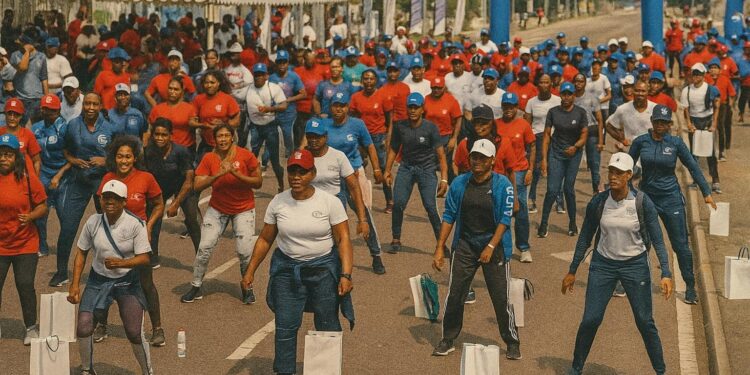Global Inactivity Spurs Local Reflection
When the World Health Organization warned that physical inactivity has become the fourth leading global risk factor for mortality and urged every government to adopt structured responses (WHO, 2020), officials in Brazzaville took careful note. Non-communicable diseases already account for an estimated 31 % of deaths in the Republic of Congo (Ministry of Health, 2022). The notion of a national framework for what francophone experts call “sport de maintien” therefore resonates not as a luxury but as a strategic imperative.
A Presidential Vision for Preventive Diplomacy
President Denis Sassou Nguesso has repeatedly highlighted preventive healthcare as a pillar of national resilience, most recently during his address to the diplomatic corps in January 2024, where he linked well-being to social stability and investment attractiveness. By situating recreational fitness within a broader doctrine of “peace through health”, the presidency lends political gravitas to what might otherwise be viewed as a technocratic initiative.
Inter-ministerial Synergy Takes Shape
At the operational level, the Directorate-General of Sports, the National Fund for the Promotion and Development of Physical Activities, and the Ministry of Health have established a joint task force that meets fortnightly under the auspices of the Prime Minister’s office. Its mandate extends from drafting certification standards for coaches to mapping public spaces suitable for safe outdoor exercise. Observers from the WHO country office and the Consultative Council for Civil Society contribute technical feedback, underscoring the collaborative ethos favoured in contemporary African governance models (African Union Health Strategy, 2023).
Professional Coaching as a Safety Pillar
Central to the emerging policy is the insistence on qualified supervision. Epidemiological data suggest that musculoskeletal injuries rise by nearly 30 % when amateurs train without proper guidance (Lancet Sports Medicine, 2021). Consequently, a registry of certified trainers—each required to complete modules in first aid, anatomy and ethics—is being finalised. The Congolese Olympic Committee has offered classroom facilities, while the private sector eyes a potential market for continuing education, hinting at a virtuous cycle of capacity building.
Nutrition and Hydration Enter the Public Lexicon
Physical exertion divorced from balanced nutrition risks negating health gains. The Ministry of Agriculture is therefore collaborating with dieticians from Marien Ngouabi University to broadcast evidence-based advice on state radio, replacing anecdotal tips with scientifically vetted guidance. Small but symbolic subsidies for locally produced mineral water illustrate how policy can align agricultural value chains with public health objectives, a linkage that development economists describe as “double-dividend” governance.
Alignment with the Sustainable Development Goals
Beyond immediate health outcomes, the initiative dovetails with at least five Sustainable Development Goals, notably SDG 3 on good health, SDG 4 on quality education through sport curricula, and SDG 5 by encouraging female participation in safe, supervised environments (UN, 2015). Diplomats in Geneva quietly note that Congo-Brazzaville’s proactive stance enhances its credibility when negotiating broader health or climate dossiers, demonstrating how domestic policy can amplify international voice.
Economic Rationale and Fiscal Prudence
A study by the Regional Office for Central Africa estimates that every dollar invested in preventive physical-activity programmes yields up to three dollars in saved medical costs over a decade. For a hydrocarbon-dependent economy seeking diversification, the prospect of reducing long-term healthcare expenditure while fostering a lively market for sports goods and wellness services is highly attractive. Such calculations convert abstract well-being into quantifiable budgetary relief, strengthening political consensus.
From Blueprint to Treadmill: Next Steps
The draft decree on recreational fitness is expected to reach the Council of Ministers before the end of the semester. Once adopted, it will inaugurate pilot projects in Brazzaville, Pointe-Noire and Oyo, each featuring free morning sessions led by certified coaches, mobile health check-ups and feedback mechanisms managed through a digital platform developed by local start-ups. Success will hinge on sustained political attention, transparent monitoring and a communication strategy that convinces citizens that moderate, regular exercise is less a trend than an attainable social norm. In this measured convergence of public health, civic education and soft power, Congo-Brazzaville may well turn the simple act of jogging into a diplomatic statement of national vitality.











































